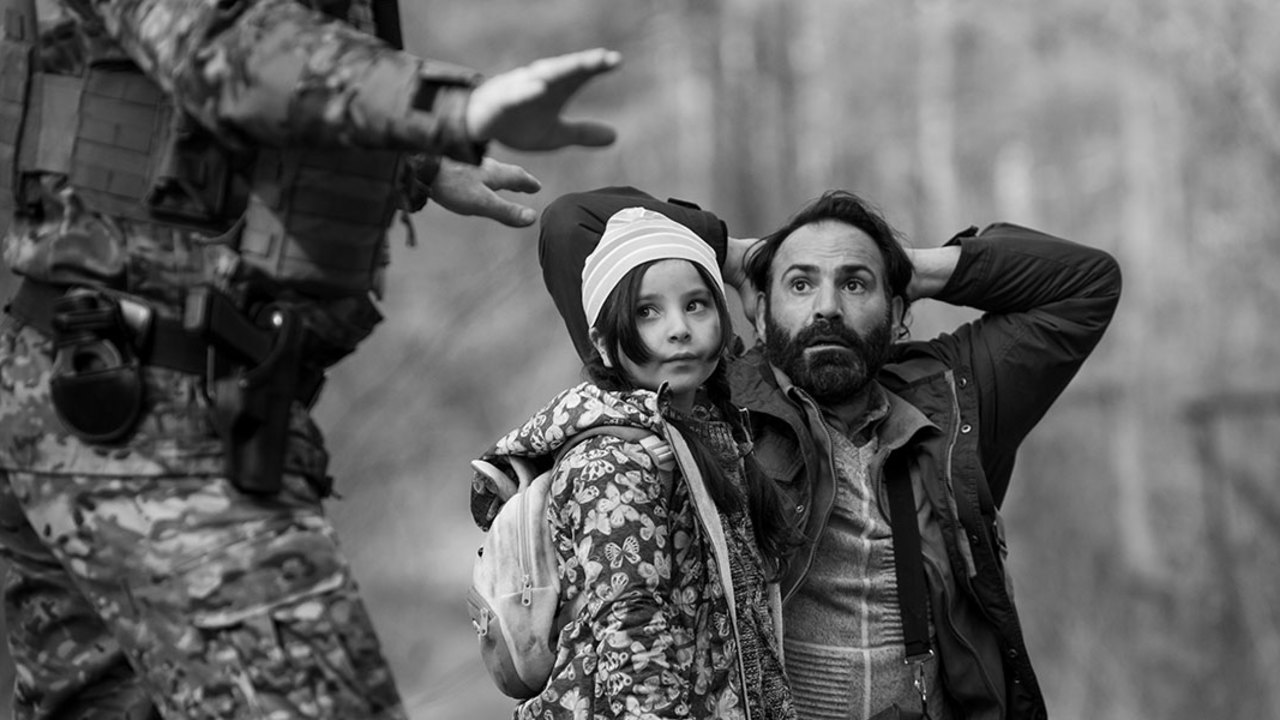Master filmmaker Agnieszka Holland turns her lens to expose the refugee crisis at the Polish border in her straight-shooting and soul-shattering drama Green Border.

In 2021, Belarusian dictator Alyaksandr Lukashenka — who was democratically defeated by Sviatlana Tsikhanouskaya the year prior yet clung to power — granted horror-stricken people fleeing the Middle East and Africa open passage to Belarus as a means of reaching Europe.
His act was not benevolence so much as a strategic ploy to overburden the wider European refugee resettlement program in a bid to antagonize the EU. To countermeasure, neighbouring Poland began constructing a steel wall laced with barbed wire. But mounting walls takes time, and, as refugees landed in Minsk, they were immediately transported to the borderland deep within the woods — coined the red zone — in a merciless landscape, where breaching unprotected areas in the guise of night is possible. Once across, the migrants ran, hoping not to be captured by Polish guards and forcibly returned to Belarus.
The latest from master filmmaker Agnieszka Holland (Burning Bush, TIFF ’13) brutally exposes the real-life crisis, where at least 37 bodies have been unearthed, highlighting godless hypocrisy on both sides of the wall. Although scripted, Green Border yields the power of documentary in depicting innocent people used as political pawns.
The perspective changes from refugees to that of the border guards, and to the patrol groups of Polish citizens who search for survivors to provide basic human rights such as food, water, and medical assistance, yet are legally barred from transporting them to safety. The film further changes tone when the crisis moves to the Ukrainian border, where refugees are seemingly welcomed with open arms.
DOROTA LECH
Official Selection, 2023 Toronto International Film Festival
Content advisory: violence
Screenings
Scotiabank 14
TIFF Bell Lightbox 2
Scotiabank 4
Scotiabank 4